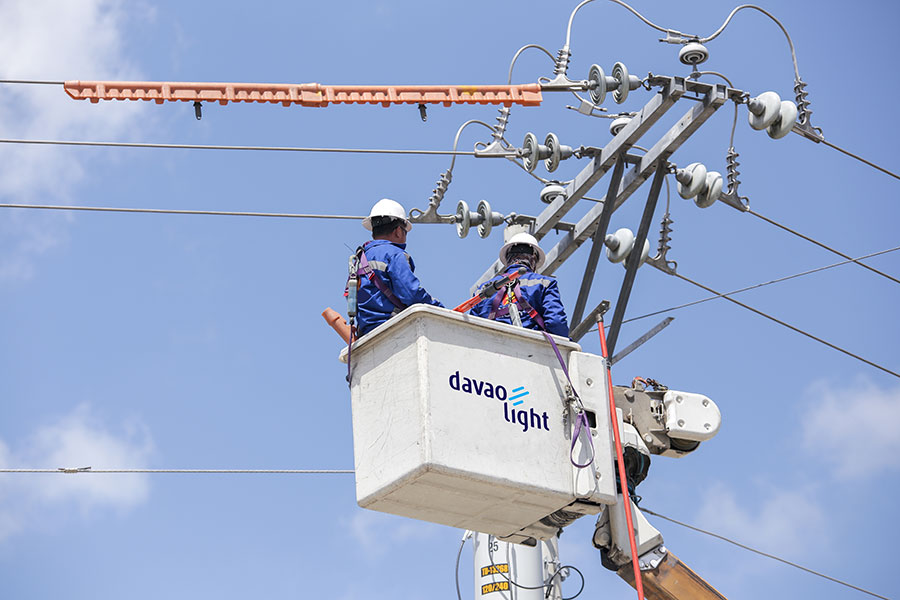The Foundation for Economic Freedom (FEF) recently held the 6th Paderanga-Varela Memorial Lecture and I was fortunate enough to be a discussant. Held in honor of former Socio-economic Planning Secretary Cayetano Paderanga Jr. and former DepEd Undersecretary Francisco Varela, the lectures aim to stir intellectual discussions around pressing issues of the day. This year’s topic was timely. I cannot think of many other more pressing issues than energy sustainability, security and affordability.
Braving the typhoon to be there were a sterling roster of speakers: Associate Professor Eduardo Araral of the Lee Kuan Yew School of Public Policy, Department of Energy (DoE) Undersecretary Rowena Guevarra, and Department of Environment and Natural Resources (DENR) Undersecretary Atty. Jonas Leones.
I will share three immediate takeaways from the event.
The first is that the energy market in the Philippines is vibrant and competitive. There are over 235 companies engaged in the power generation sector in the country, and that competitive intensity will most likely increase. The Philippines was recently ranked as the fourth most attractive renewable energy (RE) market in the developing world, and more and more investors are taking notice.
Usec. Guevarra’s presentation highlighted the impressive number of private sector energy projects that are at various stages of development. She also talked about potential efforts to speed up the development of a modern, adaptive electrical transmission system by allowing power generators to develop transmission lines to connect their projects to the grid and then get reimbursed over time.
That the Philippines is a thriving investment destination and competitive market owes a great deal to the efforts of the DoE, the Energy Regulatory Commission, the Climate Change Commission, the DENR, as well as concerned NGOs such as the FEF and other stakeholders.
The second key takeaway is that the Philippines now has a greater appreciation of energy as a key enabler of overall economic development. For years, the energy sector has been a key contributor to the national coffers, providing funds for the government to carry out programs in education, safety and security, health, etc. But there appears to be a growing awareness that energy can be more than just a source of tax. By taking a wider view of matters, the greater availability of affordable electricity can in fact make the country more competitive as a destination to investors.
Improving the availability of inexpensive, secure electricity, particularly in lesser developed areas, creates a virtuous cycle of development. Imagine an underdeveloped town in the Philippines — and there are many of them across the archipelago — where high value jobs are scarce and sustenance level livelihood opportunities are all that is present. Give that area sufficient, reliable, and affordable power, and one will see the wellspring of industries flourish, whether it is jobs in the manufacturing, call center service, healthcare, IT, tourism or other high value occupations.
But if electricity prices are very high or if electricity is not available at all? The cost of electricity may be PhP10/kWh but the cost of not having electricity is easily well over PhP200-300/kWh, as Usec. Guevarra pointed out.
The third key takeaway is that striking a balance across several imperatives — sustainability, security, and affordability — is difficult but is not impossible. Professor Araral’s initial analysis is that the Philippine’s energy policies are indeed balanced. But there are refinements that need to be considered to make them even more effective, one of which could be looking at hybrid types of energy auction programs.
The challenge faced by the German energy market, where prices spiked and remained elevated as they moved towards more variable RE, as shared by Professor Araral, is a challenge that the Philippines hopefully manages to avoid. He correctly pointed out that RE is not cheap as claimed due to its intermittency. In other words, since sunlight and wind are not constantly available to generate power, the grid requires backup power and battery storage — both added costs — to stabilize the grid and maintain reliability.
I want to highlight the “Just Energy Transition Program”, which has been carried out in a few instances and aims to essentially pay for the early retirement of coal power plants to ostensibly enable more RE projects. While sounding good in theory, this will have to provide more than business-as-usual financing if it is to enjoy widespread propagation. Grants must be included for it to truly be an attractive program and not just a rehashed commercial or multilateral commercial scheme.
The Philippine energy transition will require some support from more developed countries, who should shoulder more of the responsibility, being the biggest contributors to the climate change problem. With the combined brainpower, will and executional chops of the Filipino, yes, it can be done. But it will be a bespoke solution that will require tradeoffs and a multitude of approaches.
At AboitizPower, we are investing across all dimensions of the energy sector to bring about a balanced portfolio of assets. We are investing billions of pesos in our RE projects alone to expand on our market leading portfolio. The most recent RE plant we launched is the Tiwi Binary Power Plant in Albay, which taps into the residual heat from the existing geothermal production processes of the Tiwi Power Plant, generating an additional 17 megawatts of clean energy to the grid.
We have also announced our intentions to enter into the LNG segment as we recognize the role that gas will play in the energy transition. Our distribution utilities also actively support the Philippines’ Electric Vehicle Industry Development Act (EVIDA) and we aim to get 40% of our fleet electrified by 2030.
There is no hackneyed solution, no magical bullet, and no free lunch to this dilemma. We have to develop and grow our economy but, at the same time, we do have to find ways to responsibly reduce our emissions.



